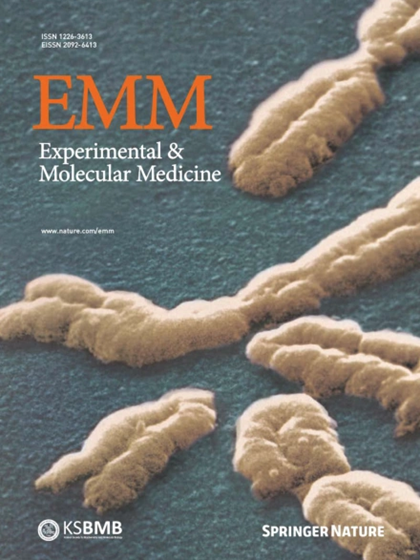Protein lactylation in cancer: mechanisms and potential therapeutic implications
IF 9.5
2区 医学
Q1 BIOCHEMISTRY & MOLECULAR BIOLOGY
引用次数: 0
Abstract
Increased glycolysis, which leads to high lactate production, is a common feature of cancer cells. Recent evidence suggests that lactate plays a role in the post-translational modification of histone and nonhistone proteins via lactylation. In contrast to genetic mutations, lactylation in cancer cells is reversible. Thus, reversing lactylation can be exploited as a pharmacological intervention for various cancers. Here we discuss recent advances in histone and nonhistone lactylation in cancer, including l-, d- and s-lactylation, as well as alanyl-tRNA synthetase as a novel lactyltransferase. We also discuss potential approaches for targeting lactylation as a therapeutic opportunity in cancer treatment. In the 1920s, Otto Warburg discovered that cancer cells use a lot of sugar even when oxygen is present. This process, called aerobic glycolysis, produces a substance called lactate. Scientists used to think lactate was just waste, but recent studies show it has important roles in cancer. Researchers found that lactate can change proteins in cells through a process called lactylation, which affects how genes are turned on or off. In this study, the authors explored how lactylation impacts cancer. They used various methods to study proteins and genes in cancer cells. They found that lactylation can change both histone proteins and nonhistone proteins, affecting gene expression and protein stability. This process can help cancer cells grow and resist treatment. The researchers concluded that targeting lactylation could be a new way to treat cancer. This summary was initially drafted using artificial intelligence, then revised and fact-checked by the author.

癌症中的蛋白质乳酸化:机制和潜在的治疗意义。
糖酵解增加会导致乳酸大量产生,这是癌细胞的一个共同特征。最近的证据表明,乳酸通过乳化作用在组蛋白和非组蛋白的翻译后修饰中发挥作用。与基因突变不同,癌细胞中的乳酸化是可逆的。因此,逆转乳酰化可被用作治疗各种癌症的药物干预措施。在此,我们将讨论癌症中组蛋白和非组蛋白乳化的最新进展,包括L-、D-和S-乳化,以及作为新型乳化转移酶的丙氨酰-tRNA合成酶。我们还讨论了将乳化作为癌症治疗目标的潜在方法。
本文章由计算机程序翻译,如有差异,请以英文原文为准。
求助全文
约1分钟内获得全文
求助全文
来源期刊

Experimental and Molecular Medicine
医学-生化与分子生物学
CiteScore
19.50
自引率
0.80%
发文量
166
审稿时长
3 months
期刊介绍:
Experimental & Molecular Medicine (EMM) stands as Korea's pioneering biochemistry journal, established in 1964 and rejuvenated in 1996 as an Open Access, fully peer-reviewed international journal. Dedicated to advancing translational research and showcasing recent breakthroughs in the biomedical realm, EMM invites submissions encompassing genetic, molecular, and cellular studies of human physiology and diseases. Emphasizing the correlation between experimental and translational research and enhanced clinical benefits, the journal actively encourages contributions employing specific molecular tools. Welcoming studies that bridge basic discoveries with clinical relevance, alongside articles demonstrating clear in vivo significance and novelty, Experimental & Molecular Medicine proudly serves as an open-access, online-only repository of cutting-edge medical research.
 求助内容:
求助内容: 应助结果提醒方式:
应助结果提醒方式:


